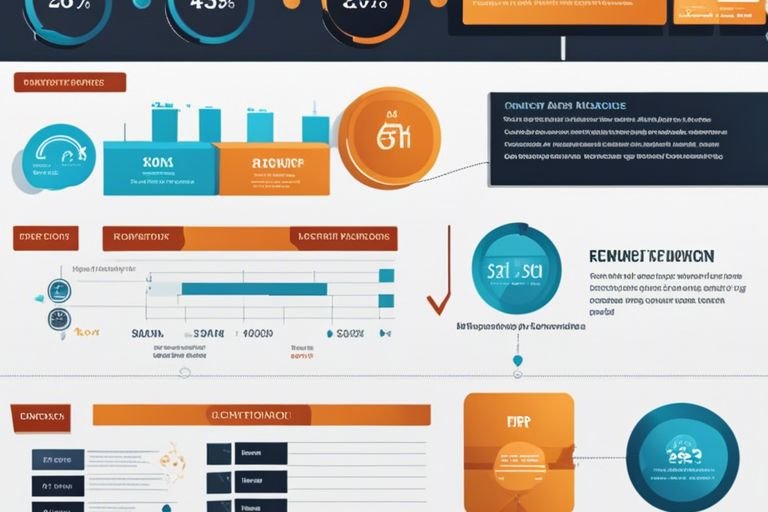How Can Small Businesses Benefit from ERP Solutions?

Small businesses often struggle with managing their various products, suppliers, and customers efficiently. This is where ERP (Enterprise Resource Planning) solutions come into play. ERP solutions are comprehensive software systems that integrate and automate the management of various business processes, including inventory, finance, sales, and human resources. By investing in an ERP solution, small businesses can streamline their operations, improve productivity, and gain valuable insights into their business performance. In this blog post, we will explore the numerous ways in which small businesses can benefit from implementing ERP solutions, and why it is a crucial investment for their growth and success.
Key Takeaways:
- Streamlined Operations: ERP solutions can help small businesses streamline their day-to-day operations by integrating various business functions, such as accounting, inventory management, and customer relationship management, into one cohesive system.
- Improved Efficiency: By automating repetitive tasks and providing real-time data insights, ERP systems can help small businesses operate more efficiently, allowing them to make informed decisions and optimize their resources.
- Enhanced Competitive Advantage: Implementing an ERP solution can give small businesses a competitive edge by enabling them to deliver better customer service, improve productivity, and adapt to market changes more quickly than their competitors who rely on manual processes.
The Benefits of ERP for Small Business Efficiency
Clearly, implementing an ERP solution can greatly improve the efficiency of small businesses in various aspects, leading to increased productivity and streamlined processes.
Streamlining Business Operations
One of the key benefits of ERP for small businesses is the ability to streamline business operations. By integrating all aspects of the business – from sales and marketing to inventory and HR – into a single platform, ERP systems can eliminate redundancies and improve communication and collaboration among different departments. This leads to faster decision-making, reduced errors, and ultimately, improved overall efficiency.
Improving Financial Management
For small businesses, effective financial management is critical for long-term success. An ERP solution can provide real-time visibility into the company’s financial data, allowing for accurate forecasting and budgeting. With features such as automated invoicing, expense tracking, and financial reporting, small businesses can better manage cash flow and make more informed financial decisions.
Businesses that implement ERP solutions often experience reduced operating costs, improved customer satisfaction, and increased profitability.
Cost-Saving Strategies with ERP
Assuming you are a small business looking to cut costs and improve efficiency, implementing an ERP solution can be a game-changer. By streamlining processes and providing real-time insights, ERP systems offer several cost-saving strategies to help businesses thrive in today’s competitive market.
Reducing Operational Costs
With an ERP system, small businesses can reduce operational costs by automating routine tasks, eliminating the need for manual data entry, and reducing the risk of errors. By centralizing data and standardizing processes, businesses can minimize waste and improve productivity across all departments. This can lead to significant savings in terms of time, resources, and money, ultimately contributing to the bottom line.
Maximizing Resource Utilization
To maximize resource utilization, businesses can use the forecasting and planning capabilities of an ERP system to better allocate their resources. With real-time data and insights, businesses can optimize inventory levels, manage production schedules, and reduce excess stock, leading to better utilization of assets and lower carrying costs. Plus, by identifying areas of inefficiency and underutilization, businesses can make strategic decisions to optimize their resources for maximum efficiency.

ERP Implementation Considerations
For small businesses considering the implementation of an ERP solution, there are several important factors to take into consideration. From identifying the right ERP solution to overcoming common implementation challenges, careful planning and execution are essential for a successful transition.
Identifying the Right ERP Solution
For small businesses, it is crucial to carefully assess the specific needs and requirements of the organization before selecting an ERP solution. Factors such as budget constraints, scalability, industry-specific functionalities, and ease of use should be taken into account. It is important to thoroughly research and evaluate the available options to ensure that the chosen ERP solution aligns with the company’s long-term goals and objectives.
Overcoming Common ERP Implementation Challenges
Identifying potential challenges that may arise during the ERP implementation process is essential for small businesses. Common challenges such as resistance from employees, data migration issues, and lack of internal expertise can significantly impact the success of the implementation. Overcoming these challenges requires proactive planning, effective communication, and the support of key stakeholders.
For instance, providing comprehensive training and support to employees can help alleviate resistance and ensure a smooth transition. Additionally, partnering with an experienced ERP implementation consultant can provide the necessary expertise to address technical and operational challenges, ensuring a successful implementation.
Leveraging ERP for Competitive Advantage
Not all small businesses have realized the potential of leveraging ERP solutions for gaining a competitive edge in the market. However, the truth is that implementing an ERP system can significantly impact the overall performance and success of a business.
Enhancing Customer Experiences
Competitive businesses understand the importance of providing exceptional customer experiences. With an ERP solution, small businesses can streamline their processes and gain valuable insights into customer behavior and preferences. This, in turn, enables them to personalize their services, build stronger relationships with customers, and ultimately gain a competitive edge in the market.
Driving Business Growth and Innovation
Customer satisfaction is crucial for the growth of any business. With an ERP system, small businesses are able to access real-time data and analytics, allowing them to identify trends and opportunities for innovation. This enables them to make informed decisions, stay ahead of the competition, and drive growth in their respective industries.
This not only benefits the business in terms of profitability and growth, but also establishes them as industry leaders, which further enhances their competitive advantage.
Conclusion
Following this exploration of how small businesses can benefit from ERP solutions, it is clear that implementing these systems can result in significant improvements in efficiency, productivity, and overall business performance. By streamlining processes, providing real-time data and insights, and enhancing collaboration, ERP solutions offer small businesses the tools to compete with larger organizations. With the ability to better manage resources, reduce costs, and make more informed decisions, ERP solutions can truly help small businesses thrive in today’s competitive business landscape.



